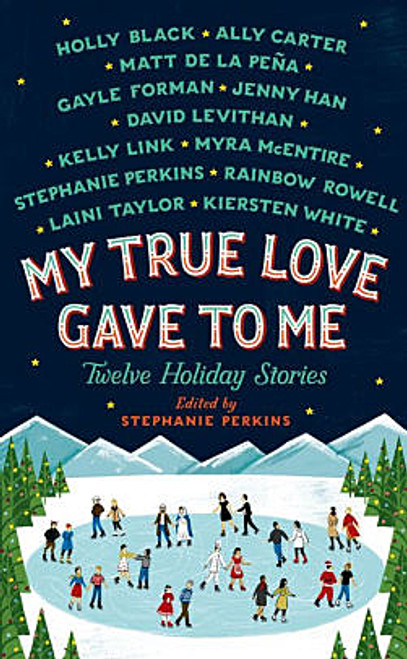In 1656, Amsterdam’s Jewish community excommunicated Baruch Spinoza, and, at the age of twenty–three, he became the most famous heretic in Judaism. He was already germinating a secularist challenge to religion that would be as radical as it was original. He went on to produce one of the most ambitious systems in the history of Western philosophy, so ahead of its time that scientists today, from string theorists to neurobiologists, count themselves among Spinoza’s progeny.
In Betraying Spinoza, Rebecca Goldstein sets out to rediscover the flesh-and-blood man often hidden beneath the veneer of rigorous rationality, and to crack the mystery of the breach between the philosopher and his Jewish past. Goldstein argues that the trauma of the Inquisition’ s persecution of its forced Jewish converts plays itself out in Spinoza’s philosophy. The excommunicated Spinoza, no less than his excommunicators, was responding to Europe’ s first experiment with racial anti-Semitism.
Here is a Spinoza both hauntingly emblematic and deeply human, both heretic and hero—a surprisingly contemporary figure ripe for our own uncertain age.
Editorial Reviews
“Beautifully crafted. What seem like separate issues—Spinoza’s pioneering advocacy of complete freedom of thought in religious matters; the turmoil in the Jewish community; the fateful events in Amsterdam in the closing years of Spinoza’s life; the philosophical developments of the seventeenth century; Spinoza’s idea of a philosophical religion utterly purged of all anthropomorphism, even to the extent of denying that God is a ‘person’ in any sense—come together as if by themselves (the sure sign of a fine artist!) to answer my puzzle: how to understand Spinoza the human being, a man for whom reason itself was a kind of salvation.” —Hilary Putnam, New York Observer
“This biography of 17th-century philosopher Baruch Spinoza (1632–1677) may seem out of place in the Jewish Encounters series, devoted to Jewish thinkers and themes, because Spinoza denied the importance of Jewish identity, and Amsterdam's Jewish community expelled him for heresy. But Goldstein, author of The Mind-Body Problem and Incompleteness and a professor of philosophy, reconstructs Spinoza's life and traces his metaphysics to his efforts to solve the dilemmas of Jewish identity. The philosopher grew up in a community of Jews who had fled the Spanish-Portuguese Inquisition. As Goldstein argues, Spinoza's "determination to think through his community's tragedy in the most universal terms possible compelled him to devise a unique life for himself, insisting on secularism when the concept of it had not yet been conceived." For Spinoza, "salvation" lay in achieving the radical objectivity of pure reason, which dissolves the contingent facts of one's personal history and religious and ethnic identity. Spinoza's effort to live as neither Jew nor Christian nor Muslim was unthinkable in the 17th century, but his arguments for political and religious tolerance were forerunners for the U.S. Constitution. In this admirable biography, Goldstein shows that Spinoza is paradoxically Jewish, "[f]or what can be more characteristic of a Jewish thinker than to use the Jewish experience as a conduit to universality?” —Publishers Weekly
“Goldstein's Betraying Spinoza offers a convenient way to start exploring his thought more fully, though I would also urge ambitious readers to pick up Steven M. Nadler's magisterial biography, Spinoza: A Life, and then plunge into the works themselves. Spinoza is worth the effort: "He who rightly knows that all things follow from the necessity of the divine nature, and happen according to the eternal laws and rules of Nature, will surely find nothing worthy of hate, mockery, or disdain....Instead he will strive, as far as human virtue allows, to act well, as they say, and rejoice.” —The Washington Post
“We are all children of Spinoza. But even now we are in danger of betraying him. Rebecca Goldstein remind us of what is urgently at stake in a clear-eyed appreciation of this prophet of tolerance, democratic values, and authentic faith. This book is as timely as it is beautifully crafted.” —James Carroll, author of House of War and Constantine's Sword
About the Author
Rebecca Goldstein received her doctorate in philosophy from Princeton University. Her award-winning books include the novels The Mind-Body Problem, Properties of Light, and 36 Arguments for the Existence of God: A Work of Fiction and nonfiction studies of Kurt Gödel and Baruch Spinoza. She has received a MacArthur Foundation Fellowship, has been designated a Humanist of the Year and a Freethought Heroine, and is a fellow of the American Academy of Arts and Sciences. She was awarded the National Humanities Medal in 2015. She lives in Massachusetts.







